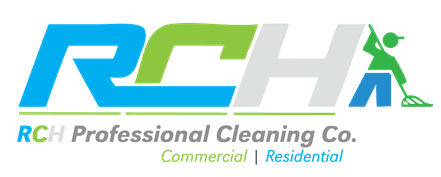Are natural disinfectants effective? We get this question all the time. Many clients have concerns about harsh cleaning chemicals and how they can affect people’s breathing and long-term health. In today’s blog from RCH Professional Cleaning, we highlight whether or not natural disinfectants work as well as chemical-based ones.
Related Post: Cleaning Versus Sanitizing Versus Disinfecting: What Are the Differences? RCH Explains
Why Go With Natural Disinfectants?
Some studies, like one out of California and highlighted by the EPA, have revealed that people can develop asthma by inhaling cleaning products over several years. Up to 80% (4 in 5) of people diagnosed with work-related asthma in California didn’t work directly with cleaning or disinfecting chemicals. They simply inhaled them on a regular basis due to the residual cleaners left on surfaces and in the immediate environment.
RCH believes natural disinfectants can help reduce your workers’ and customers’ exposure to chemicals that could have long-term effects on their health and well-being.
Some Natural Disinfectants Work Just as Well
Only products certified by the U.S. Environmental Protection Agency (EPA) can legally make claims about disinfecting surfaces. And you must follow the instructions on the label precisely. For example, disinfectants must remain wet on surfaces for anywhere from 5 to 10 minutes, depending on the instructions. Some disinfectants require people to clean surfaces before disinfection. RCH staffers follow the proper procedures and instructions when it comes to natural cleaning products.
Another thing to consider is what kind of cleaning you’re going for. For just cleaning dirt, grime, and gunk off of surfaces, there are plenty of natural cleansers out there. You probably see citrus-based cleaners on store shelves all of the time. Citrus cleaners are great for ordinary cleaning and freshening.
However, for sanitizing and disinfection, natural cleaners must be made of heavier stuff.
Luckily, you have choices.
Thymol
Thymol is an active ingredient in many natural disinfectants. Thymol is a concentrated antiseptic derived from thyme plants (the same one you use in herbs). The EPA says thyme oil has the same effectiveness as bleach as a disinfectant.
Hydrogen Peroxide
Hydrogen peroxide is a powerful disinfectant recognized by the EPA. It’s relatively inexpensive, and you can buy it on store shelves in several sizes. Hydrogen peroxide evaporates into the air as oxygen and water, so it’s safe for the environment and your lungs.
70% Isopropyl Alcohol
When looking for alcohol-based cleaners, make sure to find ones that contain at least 70% isopropyl alcohol. Like hydrogen peroxide, it evaporates readily and doesn’t harm the environment or your breathing. Isopropyl alcohol is the type of disinfectant you find in hand sanitizers and alcohol-based wipes. Simply follow the directions for alcohol disinfectants for best results.
Related Post: RCH Cleaning Explains How to Disinfect Surfaces During the Coronavirus Outbreak
Contact RCH Cleaning Today About Natural Disinfectants
If you need a professional cleaning company to combat germ transmission at your office, RCH Cleaning can help your corporate or business space. Our team is professionally trained to ensure proper disinfecting throughout any home or business. Contact RCH Cleaning today or call 417-763-8365 for more details.

